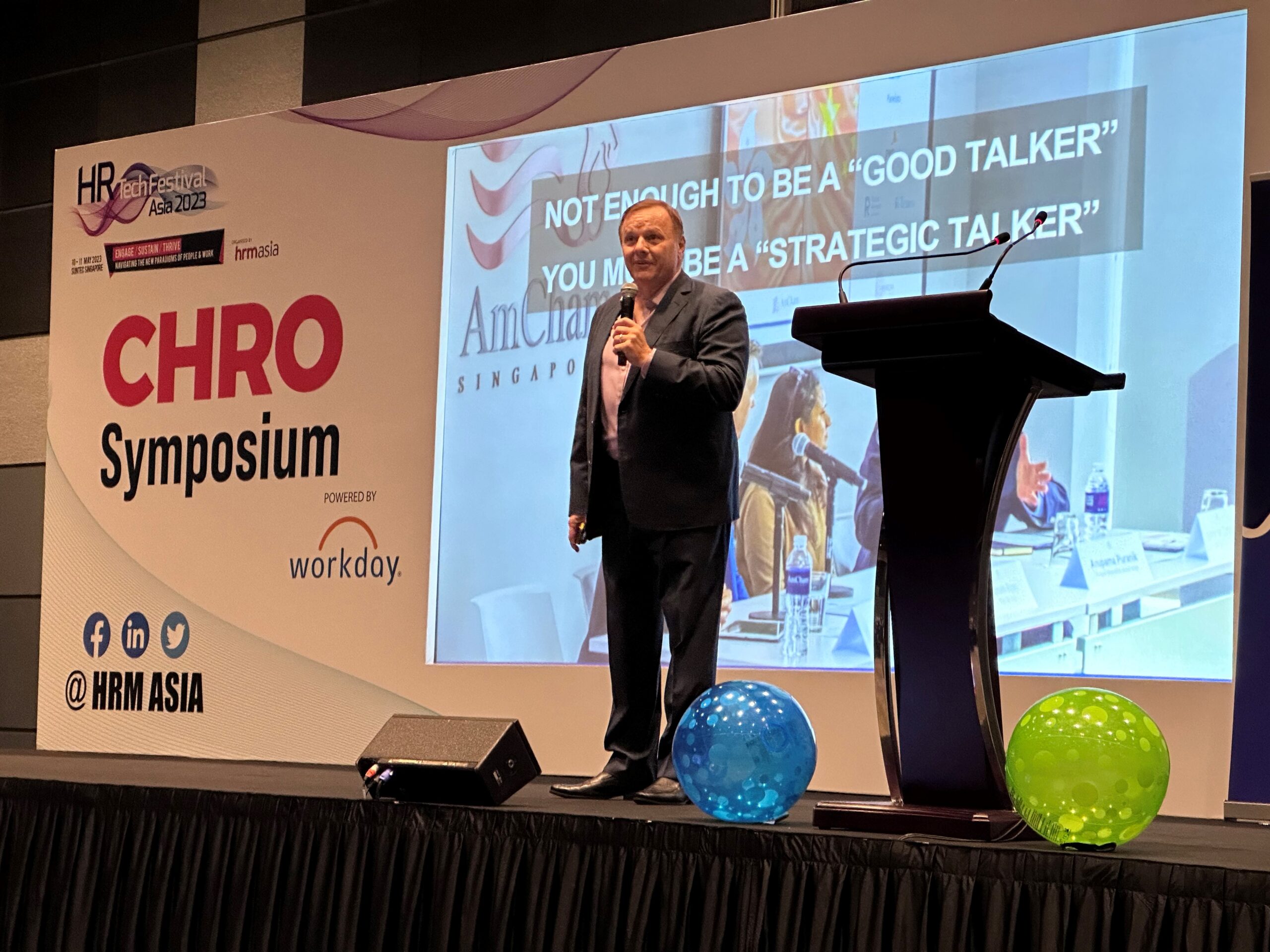Mastering impactful communication: Strategies for success as a CHRO

Effective communication has become a defining factor for success in the role of a CHRO. At the recently concluded HR Tech Festival Asia 2023, Glenn van Zutphen, Founder and Executive Coach for VanMedia Group, captivated the audience with his presentation on CHRO Exclusive Masterclass: Impactful Communication for the Successful CHRO.
Building upon the insights shared during his masterclass, HRM Asia reached out to Van Zutphen to elaborate on some of the questions that were raised during his session.
Impactful communications influence people. How do we take a further step to negotiate better with someone who already has a fixed proposition?
Van Zutphen: While my executive coaching is not technically around negotiation skills, I will say that when we must communicate, it is always best to think about your audience, even if it is only one person.
What does that person need or want from you, as it relates to the topic that you are discussing? How can you make your position a win-win by getting the information across that is important to you and useful to the person on the other side of the table? There is never any right way to approach this. It takes a thoughtful understanding of what is important to all the involved parties.
In situations where you need to capture the attention and effectively communicate with a busy C-level executive who only has a limited time frame to reach a final decision, what strategies or approaches would you recommend?
Van Zutphen: In your preparation, plan for a seven- or eight-minute presentation. Make sure you practice your comments in advance with a timer. Assuming you have done your homework and clearly understand the issue and what your audiences wants, I suggest that during the presentation you get right to the heart of the matter. Start by saying something like, “I know our time is limited today, so with your permission, I’d like to state our situation and give you my take on what I believe will give us the most effective solutions.” Then present your case. At the end, finish by saying, “There is much more that we can discuss about this and I’m happy to do so any time that is convenient for you.”
When CHROs find themselves in a position where they need to communicate challenging messages that people may not be receptive to, how can they approach such situations more effectively?
Van Zutphen: Good or bad news should never be a surprise to people. There are two scenarios that illustrate the importance of clear communication. Firstly, in the case of an employee receiving a promotion, it is crucial that they have observed and experienced consistent recognition for their work over recent months or years. This recognition should indicate that their contributions are highly valued by the organisation. Secondly, when an employee is being terminated for cause, it should not come as a surprise to them. Prior to the termination, they should have received warnings over previous months or years, highlighting areas in which improvement is needed.
With all news, considering to whom you are speaking is always the most important factor in delivering impactful communication. Frame the discussion around the current situation or problem and what needs to happen going forward for the good of the team, organisation, or client. Make it clear that the news, as difficult as it may be, is necessary to achieve certain goals. If it is appropriate, offer time for the person to offer their opinions on how to approach the situation.
READ MORE: The importance of incorporating human development into leadership
To embark on this journey, what are the three key steps that you would recommend as a starting point, and how can organisations initiative their efforts effectively?
Van Zutphen: Open, two-way communication is always a great start. Have feedback mechanisms that are available to team members. People feel valued when they are heard in an honest and open way.
Listen first to understand. Then speak.
When speaking, first consider the topic at hand and what you want or need to say about it. Then think about your audience, what do they need to hear? What are their concerns, pain points, and sensitives? Always meet the needs of your audience.



